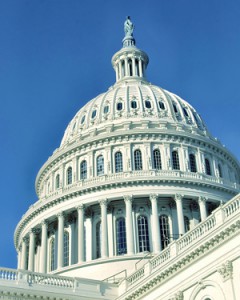A Bad Week for Pro-Choice Advocates: New Restrictions on Abortion Access

Last week was not a good week for pro-choice advocates. The Missouri state legislature passed a bill that would require women to wait three days between initially seeing a doctor and accessing an abortion procedure. The Louisiana State Senate passed a bill that would require doctors working at abortion clinics to have admitting privileges at hospitals, an unnecessary measure that severely limits abortion access for poor, rural women. A federal court heard arguments from the state of Arizona about its attempt to implement strict restrictions on access to abortion drugs. And in the U.S. Senate, Lindsey Graham of South Carolina promoted a bill that would ban abortion at twenty weeks.
Much of the hubbub surrounding these measures, particularly the twenty-week abortion ban’s potential debate in the U.S. Senate, involves politicians’ pandering to the anti-abortion religious right. Humanists and feminists may bemoan these intrusions into women’s private medical decisions. Meanwhile, groups like the Catholic Association and the Family Research Council (whose mission, emphasis added, is to “advance faith, family and freedom in public policy and culture from a Christian worldview”) are applauding these efforts to curtail reproductive rights and allow religious beliefs to dictate government decisions.
The religious right’s influence over abortion policy is only growing. In the past three years, more anti-abortion laws have been enacted in the United States than in the past decade, and their negative impact on the quality of life of women and their families is very real. Women who have control over when they become parents are more likely to complete their education, advance in their careers, and support themselves financially. Without access to a full range of reproductive services, including abortion, women and are more likely to remain in or slip into poverty, as well as suffer severe health problems and even death if they cannot terminate a pregnancy for medically necessary reasons. These serious consequences of inadequate reproductive care are, however, increasingly ignored in favor of religion-based claims that a woman deserves punishment for being sexually active or that a fetus deserves the status and rights of personhood because, usually implied though not directly stated, it has a soul.
Obviously, this is an issue of concern for anyone who cares about women’s health and reproductive care. However, it should also draw the attention of anyone who is passionate about maintaining the separation of church and state. When it comes to women’s healthcare, politicians are becoming more likely to listen to religious, anti-abortion groups instead of doctors and scientists. They are also prioritizing religious allegations focused on faith over secular arguments based in fact. The religious right’s strategy of gradually whittling away at abortion and birth control access through state and local legislatures is working. The twenty-week abortion ban in the U.S. Senate may not pass, but restrictions at the state level have, like those recently enacted in Missouri and Louisiana, as well as in many other states. As abortion restrictions become increasingly normalized at the state level, they can also creep into policy at the national level.
The chipping away of abortion rights is also chipping away Jefferson’s wall of separation between church and state. Passing abortion restrictions on religious grounds masked by seemingly irreligious rhetoric, such as the medically unsupported claim that a fetus can feel pain at twenty weeks, only makes way for other policies based in religion to be passed. Instead of catering to the religious right, politicians should be evaluating women’s healthcare issues based on secular, scientific facts. These facts demonstrate that when a woman’s reproductive decisions are left up to her and her doctor, she is healthier and better able to support herself, take care of her children and contribute to society. When the separation of church and state is maintained and women’s access to reproductive care improves, everyone benefits. Yet the religious right has hijacked the conversation surrounding abortion, putting those who care about women’s healthcare and the First Amendment on the defensive.
Humanists must be more vocal about the abortion issue and not only discuss how it affects women’s rights but also how it impacts First Amendment rights. Women’s decisions to terminate a pregnancy may be complicated, but there is no reason to complicate them further by enacting burdensome abortion restrictions based on religious belief. And there is nothing complicated about the separation of church and state. The Constitution is very clear that the government should not allow purely religious viewpoints to guide policy, and yet that is what public officials do when they allow religious, anti-abortion activists to have the last word on matters related to women’s healthcare. By bringing a secular voice, based on reason and science, to the abortion debate humanists can change the conversation and help lawmakers create policy that is medically sound and benefits women and their families.
I’m willing to speak up. Are you?
